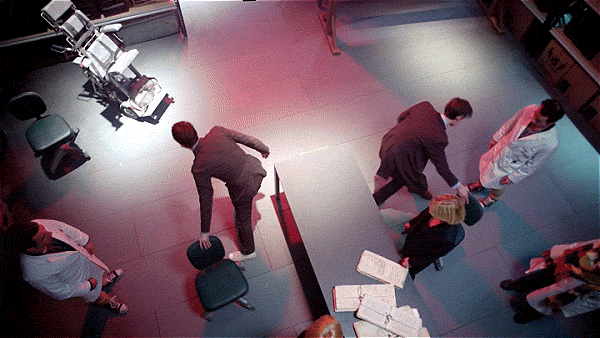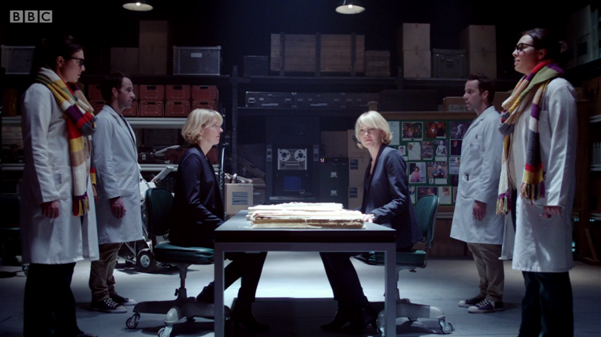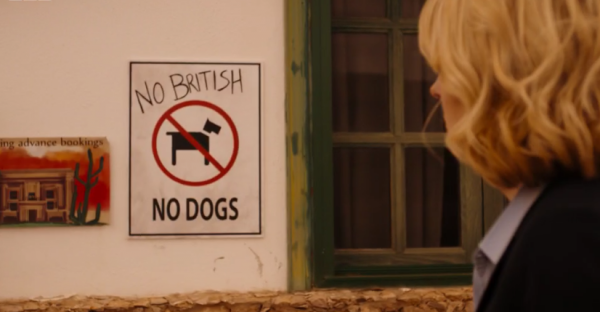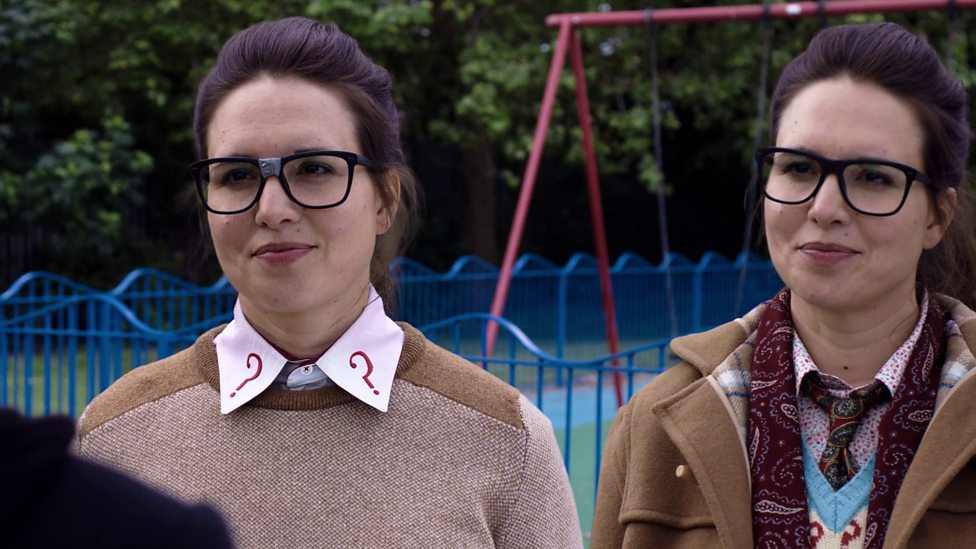Welcome to a new feature here on Big Shiny Robot: “The Resistance Library.” With things in the news being. . . well, what they are, it feels necessary to start going over some of our favorite reading, listening, and viewing material that deals with the social issues we see all around us.
So be prepared as we dive into some of our favorite things that inspire us, help us deal with what’s going on, and teach us about a way forward.
If you’re a big fan of our nascent fascist overlord, this column is likely not going to be for you. But if you’re interested in resisting, here’s some things to get you through the week.
This week to start, it feels like we need to talk about immigration. And walls. And bans on certain kinds of people.
One of the admirable things about geekdom is we should all inherently know somewhat what it is like to feel misunderstood or an outsider. To bring that empathy to bear is key to this discussion.
And so I can think of no more suitable place to start to discuss this than with Doctor Who. Last season (Season 9 of the “New Who”), which I was not shy about proclaiming one of the greatest seasons ever of sci-fi television in the history of television, gave us an amazing morality play about immigration, tolerance, and violence in the two-parter “The Zygon Invasion” and “The Zygon Inversion.”
‘Member “The Day of the Doctor”? ‘Member John Hurt as The War Doctor? (You certainly better, you heathens.) And ‘member how he and Doctors 10 and 11 joined forces to prevent a war between Zygons and Earth?


At the beginning of our episodes, this uneasy peace treaty is now under threat, with a rogue Zygon element interested in starting a war. 20 million Zygon refugees have been resettled on Earth, and with their shapeshifting abilities, more or less tried to blend in with the human population. But this tiny cell of Zygons is determined to force their fellow aliens out into the open rather than assimilating in with the people of Earth.
Not at all paralleling the issues surrounding immigration from the Middle East and jihadist terrorists, no?
They trace the cell to an enclave of Zygons who settled in Truth or Consequences, NM under the guise of being “British,” and when arriving there they find the resettlement did not go so well. It seemed those red blooded ‘Muricans didn’t like these weird new British residents so much. The same basic resentments were all there: they had no money, they smelled weird, they acted funny.

This is one of the master strokes of the episode. By removing actual outward appearances of racism by making the insider and outsider groups both white, both English-speaking, but with one group inwardly literally alien, the show skewers and fries up the concept of racism as both purely artificial and also so very real.
We [human beings] can find a reason to hate an outsider group, and it’s usually the same reasons we always give for everyone. That we said about the Irish and Scots. About the Italians and Greeks. About the Poles, Slovaks, and Germans. About the Jews. About the Mexicans, Guatemalans, Argentinians and Ecuadorians. And now about “Muslims”– which is not a race at all, but a stand-in for the same ugly oppression that has always existed.
One of the other beautiful elements of these episodes is the further development of Miss Petronella Osgood, one of my favorite minor Who characters. To ensure the peace after “The Day of the Doctor” two Osgoods would protect the secrets of the peace, including a mysterious “Osgood Box.” One Osgood is human, the other a Zygon copy– both committed to protecting the peace rather than any one faction. Indeed, when one of the Osgoods is killed in an early Zygon attack, the remaining one refuses to tell anyone whether she is the human original or the Zygon copy. “Osgood,” she would reply in a question as to “What are you?”

Indeed, the two had grown so close to one another that they began to lose track of who was who. They were both Osgood. They were both Zygon, they were both human. Differences erased.
Have I mentioned my nerd crush on Osgood?
Regardless, this all ends in a final confrontation between Kate and “Bonnie” the head Zygon (disguised as Clara). It is a masterful piece of sci-fi television, and how Peter Capaldi wasn’t nominated for an Emmy (and a BAFTA) is beyond me.
To bring peace back to our land, we need to stop fighting and start talking, start understanding. Yes, we must resist the evils of tyranny, but we can start by forgiving our enemies. And ask that they do the same.
Steven Moffat is quoted as saying, “It’s hard to talk about the importance of an imaginary hero. But heroes ARE important: Heroes tell us something about ourselves. History tells us who we used to be, documentaries tell us who we are now; but heroes tell us who we WANT to be. And a lot of our heroes depress me.
But when they made this particular hero, they didn’t give him a gun–they gave him a screwdriver to fix things. They didn’t give him a tank or a warship or an x-wing fighter–they gave him a box from which you can call for help. And they didn’t give him a superpower or pointy ears or a heat-ray–they gave him an extra HEART. They gave him two hearts! And that’s an extraordinary thing.
There will never come a time when we don’t need a hero like the Doctor.”
Now is the time when maybe we will need ray guns and X-Wings. But we can all use a little more heart. Perhaps sharing this message– these episodes– with our sci-fi loving brothers and sisters who happen to have voted for the Cheeto Fuhrer Tinyhands, and maybe they’ll get the message, too.
In an unrelated piece of news, David Tennant was on one of Britain’s top chat shows and had this to share with people.It’s oddly comforting.
“It’s all going be ok. Trust me. I’m a Doctor.
BUT it’s up to us to /make it ok/. It’s time to be positively rebellious and rebelliously positive. As long as we stand up for what we believe in, don’t give in to anger or violence, look out for the little guy, keep an eye on the big guys, refuse to keep our mouth shut, and just generally try not to be dicks, every little thing is gonna be alright.”
We lost The War Doctor, but the one who regrets remembers.
And the one with the angry eyebrows helps us remember to think like he does, so we don’t have to make the choices he did.
Listen.